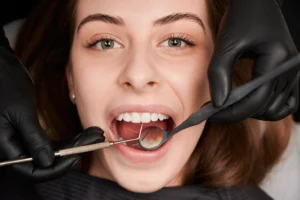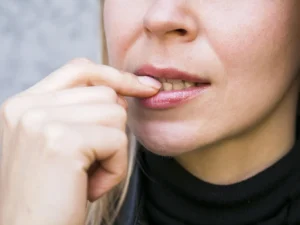Table of Contents
Welcome! Whether you’re new to Hardin, MT or simply looking for a clearer sense of what general and family dentistry includes, this guide is for you. At Hardin Family Dental, our goal is to demystify what your dental team does, so you feel informed and confident before your appointment. Below, you’ll find what general & family dentistry means, why it matters, what to expect, and how to prepare.
What Is General & Family Dentistry?
General dentistry covers the core dental care services that most people will need over their lifetime. Think of it as your dental home base: routine cleanings and checkups, fillings, basic extractions, preventive care, diagnostics (x-rays), and patient education.
When you call our dental team in Hardin, MT, we start by evaluating your overall oral health—teeth, gums, bite, and more. From there, we tailor a care plan to your age, risk factors, and preferences.
Because general & family dentistry is broad, understanding it helps you ask smart questions and feel more comfortable before walking through our doors.
Why General & Family Dentistry Matters
Preventive care saves you from bigger problems
Most serious dental issues start quietly. A small cavity left untreated can become painful or require root canal therapy later. Regular care catches concerns early—when they’re easier and less costly to treat.
According to the CDC, about 1 in 5 adults ages 20–64 has at least one untreated cavity.
Also, only about 65.5% of adults report having visited a dentist for an exam or cleaning within the past year.
Prevention is the foundation of general dentistry, and treatments like dental sealants protect your teeth from decay before it starts.
Your first dental visit is one of the most important steps in building lifelong oral health, and it’s designed to be simple, comfortable, and informative.
Oral health links to your whole body
Your mouth is part of your body’s ecosystem. Gum disease (periodontal disease), for instance, is linked to diabetes, heart disease, and inflammation. When we encourage healthy gums, we support more than just your smile.
Core Components of General & Family Dentistry
Below are the foundational services most patients will receive under this pillar of care:
| Service | What It Involves | Why It Matters |
|---|---|---|
| Exams & X-Rays | Our dentist checks your teeth, gums, and mouth. Digital x-rays let us see between teeth and under gums. | Helps detect decay, bone loss, or hidden problems early |
| Professional Cleanings | Dental hygienist removes plaque and tartar above and below the gumline, polishes your teeth, and gives tips. | Prevents gum disease and cavities |
| Dental Sealants | A thin protective coating applied to back teeth’s grooves | Helps stop decay in hard-to-clean areas (especially useful for kids or grooves) |
| Fillings | We remove decayed tooth tissue and restore it with composite (tooth-colored) or other safe materials | Stops decay from spreading and restores function |
| Tooth Extractions | Removal of a tooth that can’t be reasonably repaired | Prevents pain, infection, or damage to nearby teeth |
| Night Guards / Bite Splints | A custom appliance to prevent grinding (bruxism) | Protects teeth and reduces wear or pain |
| Oral Health Education | Coaching you on brushing, flossing, diet, and lifestyle habits | Empowers you to take control of your oral health |
What to Expect During a Visit
When you step into Hardin Family Dental for a general dentistry visit, here’s a typical flow:
- Welcome & History
We’ll update your medical and dental history. Tell us about any new medications, health changes, or concerns you’ve noticed (sensitivity, bleeding, etc.). - Examination
Our dentist reviews your teeth, gums, bite, and oral tissues. We may use intraoral cameras to show you what we see. - X-Rays
If needed, digital x-rays help us catch early decay, bone loss, or other hidden issues. - Cleaning
The hygienist uses scalers to remove plaque/tartar and gently polishes your teeth. We also floss and may apply fluoride. - Review & Plan
We’ll discuss findings: cavities, gum health, risk zones, etc. Then we create a tailored treatment plan with options. You decide what you want to move forward with. - Scheduling Next Steps
If follow-up treatments are needed, we’ll book them and give you guidance for what to expect.
Throughout, feel free to ask questions. We want you to understand why we recommend something—not just that we recommend it.
How Often Should You Visit the Dentist?
How often you should see the dentist depends on your age, oral health history, and risk factors, but regular dental visits help prevent issues before they become serious and keep your smile healthy for life.
The “twice a year” adage is a good starting point, but it may not fit everyone. Many patients with higher risk—history of disease, smoking, diabetes, or gum disease—benefit from cleanings every 3 to 4 months. For low-risk patients, once every six months may suffice.
Our dentists evaluate your risk and recommends a schedule that fits your situation. The point is to catch issues early, not wait for symptoms.
Who Benefits from General & Family Dentistry?
This approach suits nearly every age group:
- Children and adolescents benefit from early preventive care, sealants, and monitoring of development
- Adults benefit from maintenance, fillings, night guards, and early detection
- Seniors often need more periodontal monitoring, relations with systemic health, and options for missing teeth (bridges, dentures, implants)
Children’s dental care is especially important for developing strong habits and preventing problems before they arise. Learn more about the importance of early dental care for children and how it sets the foundation for lifelong oral health.
Common Questions from Patients
Below are questions many new and returning patients ask. You may find a few in your mind too.
Do sealants work for adults?
Yes. While often applied in childhood, sealants can protect grooves on adult molars too—especially for patients with risk of decay in those hard-to-clean areas.
Are x-rays safe?
Digital x-rays use very low radiation—comparable to what you get from natural background sources in a day. We always follow the “As Low As Reasonably Achievable” (ALARA) principle and take them only when needed.
Will getting a filling hurt?
No. We use local anesthetic to numb the area so you feel little to nothing during the procedure. Some pressure or vibration may be noticeable, but pain is minimal.
Is fluoride still important?
Absolutely. Fluoride strengthens enamel and helps reverse early decay. Many community water systems supplement fluoride to a safe level recommended by health experts.
What about informed consent?
Before any procedure beyond a basic exam, our dentist will review your options, risks, and costs. This conversation is key so you feel comfortable and in control.
How General Dentistry Links to Other Services
Because general & family dentistry is foundational, it often connects to other services you’ll see on this blog later. Here’s how:
- Restorative dentistry (crowns, bridges, implants) builds on work done by general dentistry
- Cosmetic dentistry (veneers, whitening, Invisalign) often overlays general treatment plans
- Periodontal care (gum disease treatment) is frequently detected during your routine visits
- Emergency dental care often begins in a general dentistry context (e.g. a general dentist may stabilize a broken tooth before referring)
- Night guards / sleep apnea treatment link to general dentistry because many indicators show up in your regular exam
Our recommendation is always to look at the whole picture and make incremental improvements.
How You Can Prepare for Your Visit
Here are a few tips to help you get the most out of your appointment:
- Write down any dental concerns or symptoms (sensitivity, bleeding, pain).
- Bring a list of medications and your medical history.
- Be ready to discuss your brushing/flossing habits and diet.
- Ask for clarity if you don’t understand something (we’re happy to explain).
- Don’t wait—if you notice symptoms, call early rather than hoping they go away.
Tips for Maintaining Oral Health Between Visits
- Brush twice a day with fluoride toothpaste (use a soft brush).
- Floss daily, getting under the gumline.
- Limit sugary and acidic foods (they fuel decay).
- Drink plenty of water (especially if your water is fluoridated).
- Avoid tobacco use—it drastically raises your risk for gum disease and oral cancer.
- Wear your night guard if we recommend one.
Sometimes, protecting your teeth means more than just brushing and cleanings — it might involve specialized solutions like wearing a night guard to prevent damage from teeth grinding.
The Hardin, MT Advantage
If this guide helped you understand what general & family dentistry involves, we’d love to welcome you. Contact Hardin Family Dental today to schedule your next cleaning or examination. Our dentists and dental team are ready to answer your questions, tailor a care plan, and help you feel confident and comfortable. Contact us to get started, and we’ll see you soon for healthier teeth and gums.



